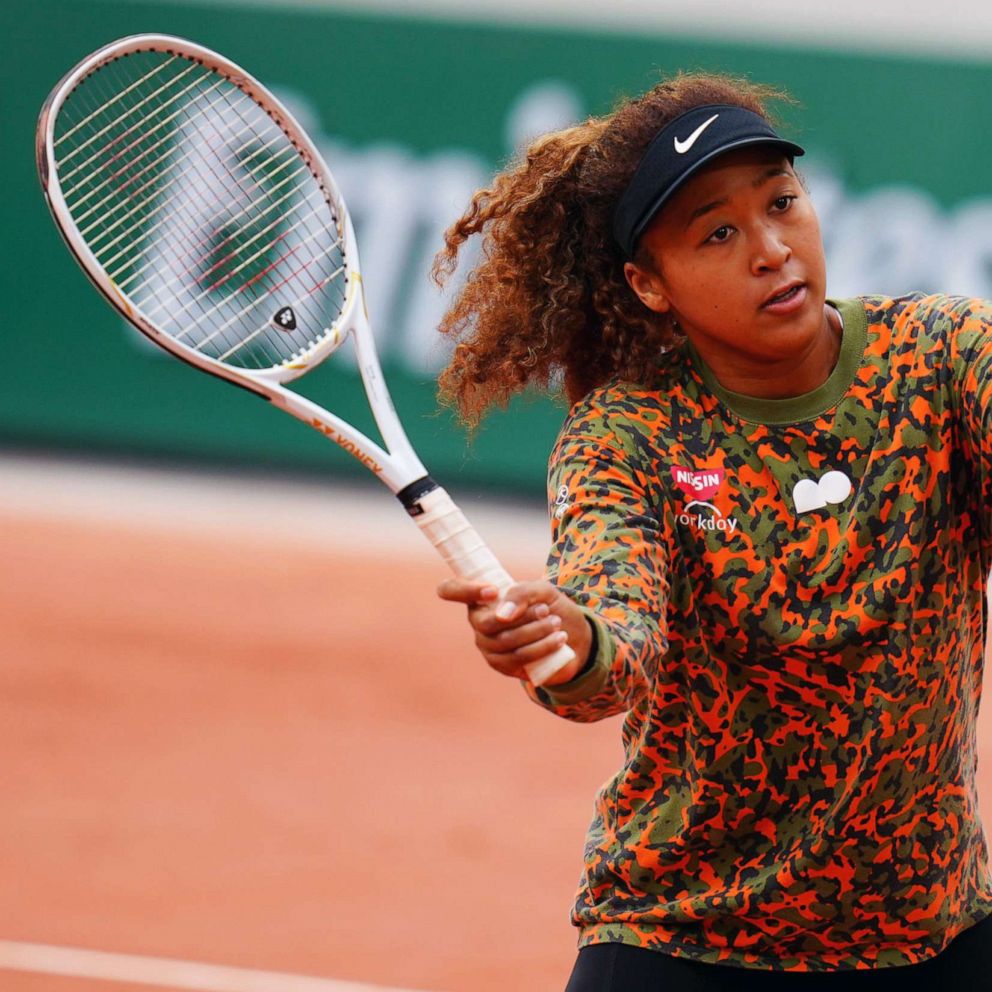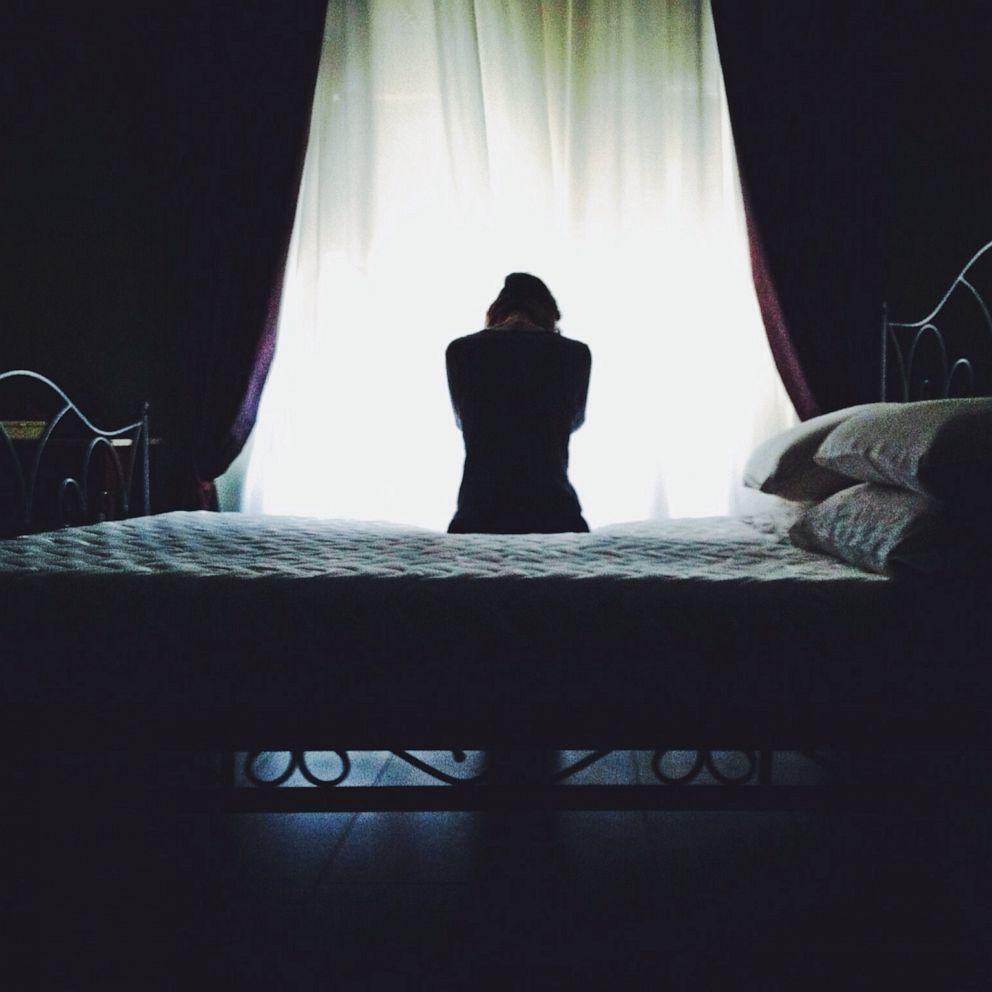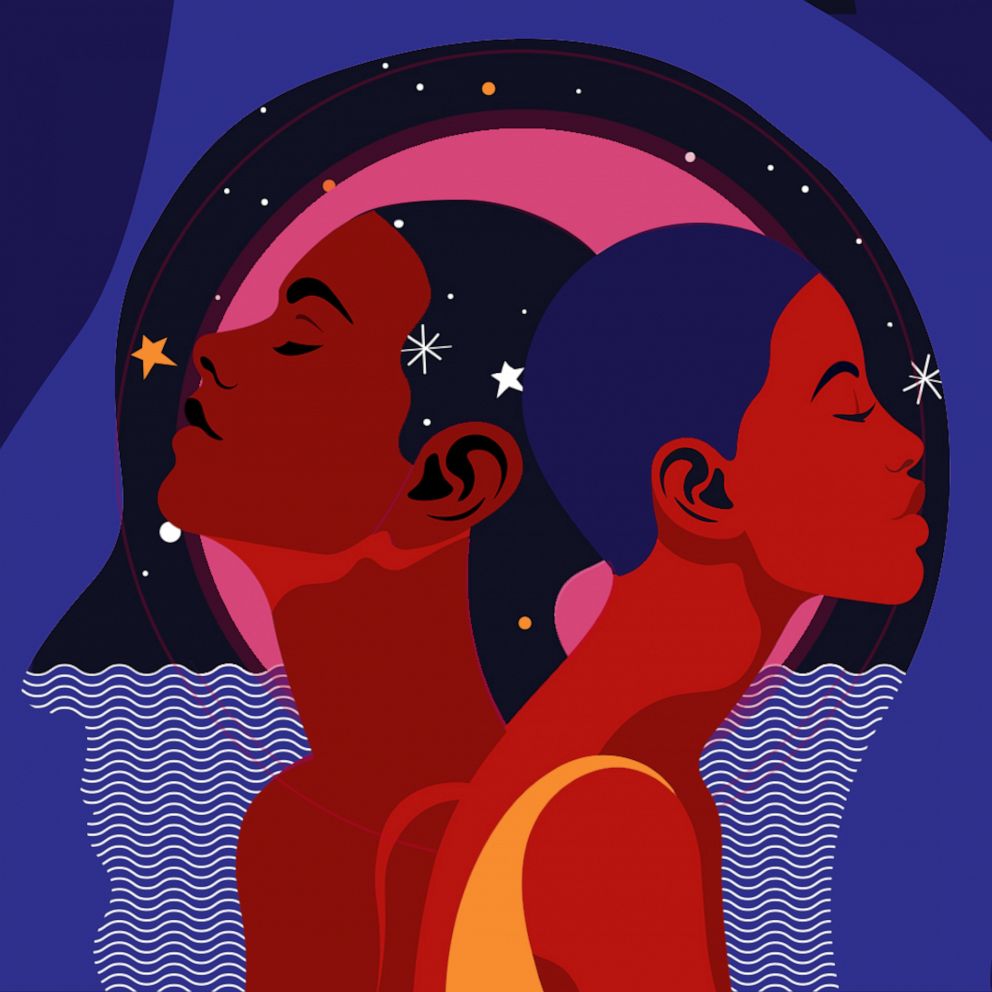Naomi Osaka withdraws from 2021 French Open after mental health controversy
She said she will "take some time away from the court now."
Tennis star Naomi Osaka said she's withdrawing from this year’s French Open.
Osaka posted a statement to Twitter on Monday with her intention to withdraw from the Grand Slam tournament. It follows the controversy surrounding her decision to skip press conferences for the duration of the competition.
"This isn’t a situation I ever imagined or intended when I posted a few days ago," Osaka began, referencing an earlier statement she put out on May 26. "I think now the best thing for the tournament, the other players and my well-being is that I withdraw so that everyone can get back to focusing on the tennis going on in Paris."
Despite Osaka’s win on Sunday night against Patricia Maria Tig, much of the conversation has been around her decision to abstain from press obligations and the resulting fine issued to her by French Open officials.
Osaka said her reasoning for not doing press during the French Open was because of her mental health. She stated there was a disregard for athletes’ mental health during press conferences.
"I never wanted to be a distraction and I accept that my timing was not ideal and my message could have been clearer. More importantly I would never trivialize mental health or use the term lightly," she wrote on social media.
"The truth is that I have suffered long bouts of depression since the US Open in 2018 and I have had a really hard time coping with that. Anyone that knows me knows that I’m introverted, and anyone that has seen me at tournaments will notice that I’m often wearing headphones as that helps dull my social anxiety," Osaka continued.
Osaka won her first Grand Slam title at the 2018 U.S. Open in her match against Serena Williams. After Williams hugged Osaka, she returned to her seat and put a towel over head. In retrospect, Osaka said the enormity of the moment got to her. "I felt like I needed a break from everything," she previously said.
During the trophy presentation, the crowd booed the 23-year-old, causing her to cry. In her acceptance speech, Osaka acknowledged that she was not the fan favorite.
"I'm sorry it had to end like this," she said. "I just want to say thank you for watching the match. It was always my dream to play Serena at the U.S. Open finals ... I'm really grateful. Thank you."
Osaka went on to apologize to the press and said that while they have "always been kind" to her, she is not "a natural public speaker" and gets "huge waves of anxiety" before she speaks to the media.
"I get really nervous and find it stressful to always try to engage and give you the best answers I can," she said. "So here in Paris I was already feeling vulnerable and anxious so I thought it was better to exercise self-care and skip the press conferences."
Osaka said she wrote to the French Open privately to apologize and is willing to speak to officials after the tournament ends.
"I'm gonna take some time away from the court now, but when the time is right I really want to work with the Tour to discuss ways we can make things better for the players, press and fans," she said.
Gilles Moretton, the head of the French Tennis Federation that organizes the French Open, made a brief statement to the media before leaving without taking questions, saying the tournament is “sorry and sad” after Naomi Osaka’s “unfortunate” withdrawal from the event.
“We wish her the best and the quickest possible recovery, and we look forward to having Naomi in our tournament next year,” he said.
Officials of the four Grand Slam tournaments -- the French Open, Australian Open, U.S. Open, and Wimbledon -- released a new joint statement offering Osaka their support, saying they "look forward to her return as soon as she deems appropriate." The update comes just days after the tournaments fined Osaka for skipping her post-game press conference on Sunday and threatened her with suspension from future games if she did not fulfill her press obligations.
"Mental health is a very challenging issue, which deserves our utmost attention. It is both complex and personal, as what affects one individual does not necessarily affect another," the new statement read. "We commend Naomi for sharing in her own words the pressures and anxieties she is feeling and we empathize with the unique pressures tennis players may face."
Others also spoke out on Osaka's play, including tennis legend Billie Jean King, who tweeted a reaction Monday afternoon.
"It’s incredibly brave that Naomi Osaka has revealed her truth about her struggle with depression," King said. "Right now, the important thing is that we give her the space and time she needs. We wish her well."
Serena Williams also commented on the situation after a first round win at the French Open.
"The only thing I feel is that I feel for Naomi. I feel like I wish I could give her a hug because I know what it’s like. Like I said, I’ve been in those positions," Williams said. "We have different personalities and people are different. Not everyone is the same. I’m thick. Other people are thin. Everyone is different and everyone handles things differently."
"You just have to let her handle it the way she wants to, in the best way she thinks she can, and that’s the only thing I can say. I think she’s doing the best that she can," she added about Osaka.
Chris Evert, an 18-time Grand Slam champion who is now a tennis analyst for ESPN, said she thinks Osaka speaking out is an opportunity to rethink how professional tennis players interact with the press.
"I think these press conferences are a responsibility to the players, but at the same time I think it’s time to take a closer look at the structure of these press conferences to make them more comfortable and healthier for the players," Evert said Monday on "Good Morning America." "Maybe limit them to 15 minutes, maybe check the credentials of the press a little bit better, maybe put a moderator in there to really field the questions."
"This is an individual sport and it can be brutal at times," she said of tennis, while adding about players like Osaka, "Remember these athletes are teenagers and in their early 20s and they can’t cope with what a 45, 50-year-old golfer can cope with. The press really has to have some compassion and some respect for the questions they ask because it’s really putting a lot of the players off."
The Women's Tennis Association (WTA) said in a statement they are "here to support and assist Naomi in any way possible."
"Mental health and awareness around it is one of the highest priorities to the WTA," said the statemen. "We have invested significant resources, staffing and educational tools in this area for the past 20+ years and continue to develop our mental health support system for the betterment of the athletes and the organization. We remain here to support and assist Naomi in any way possible and we hope to see her back on the court soon."







